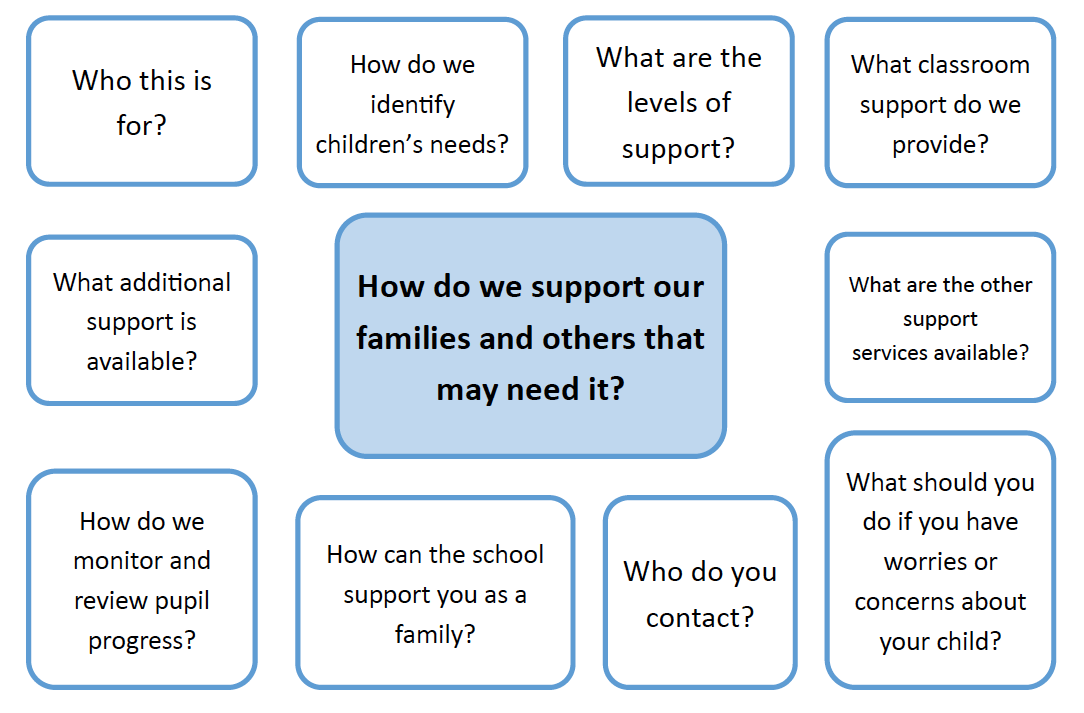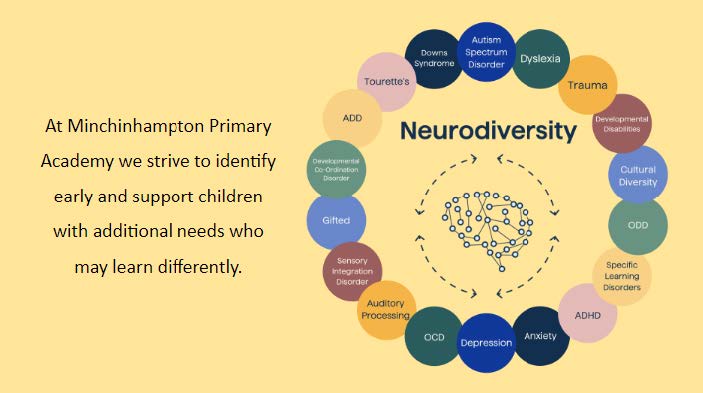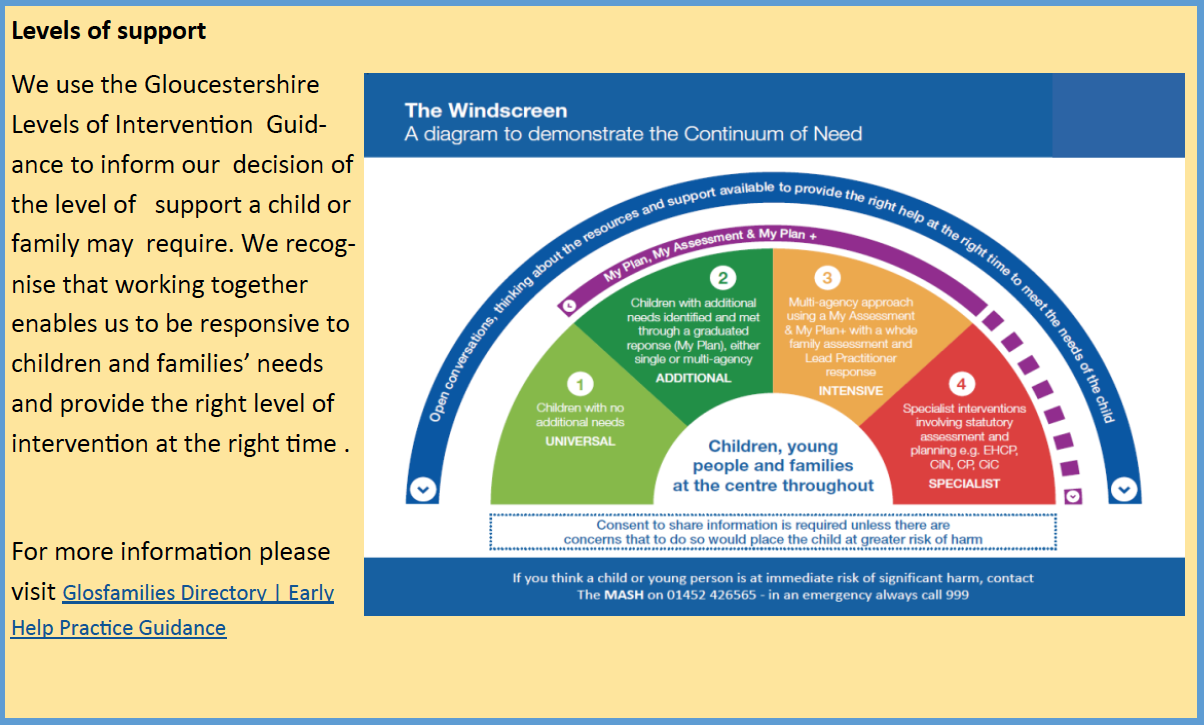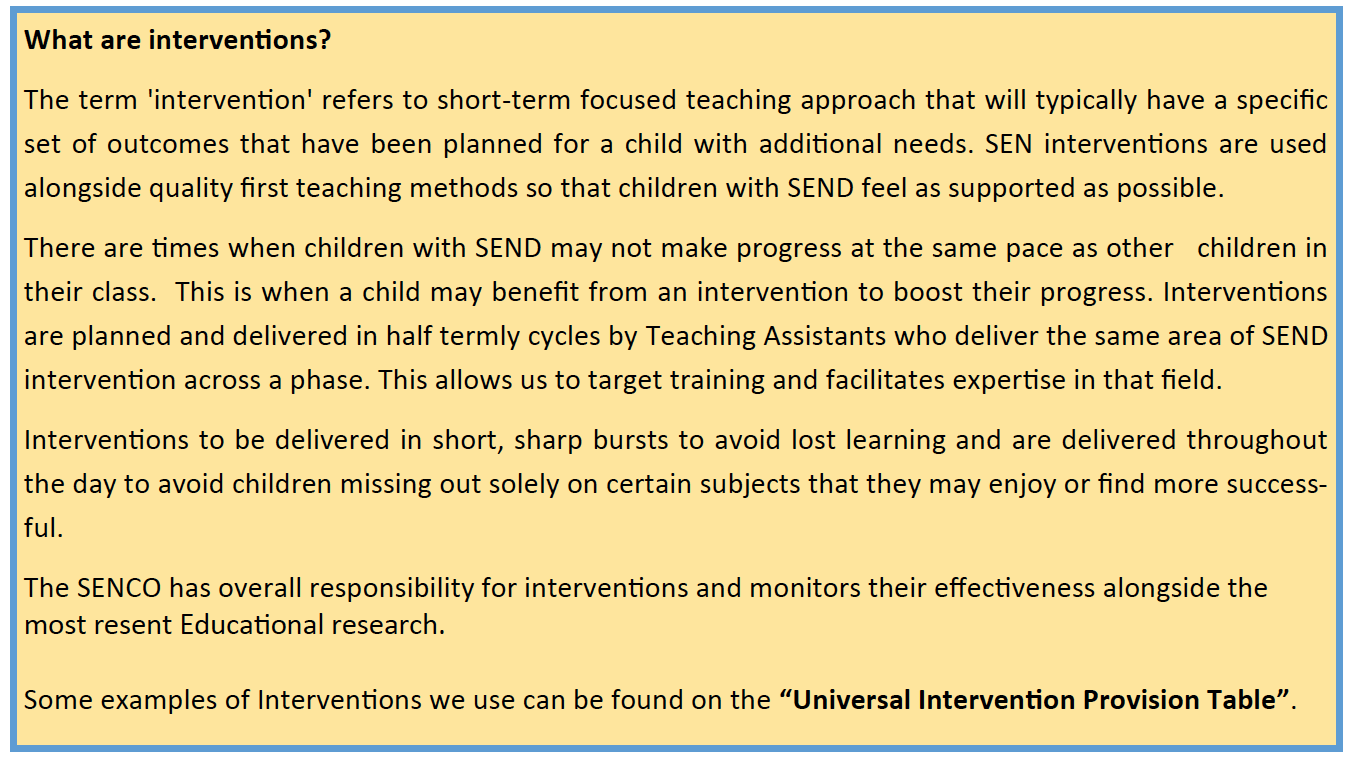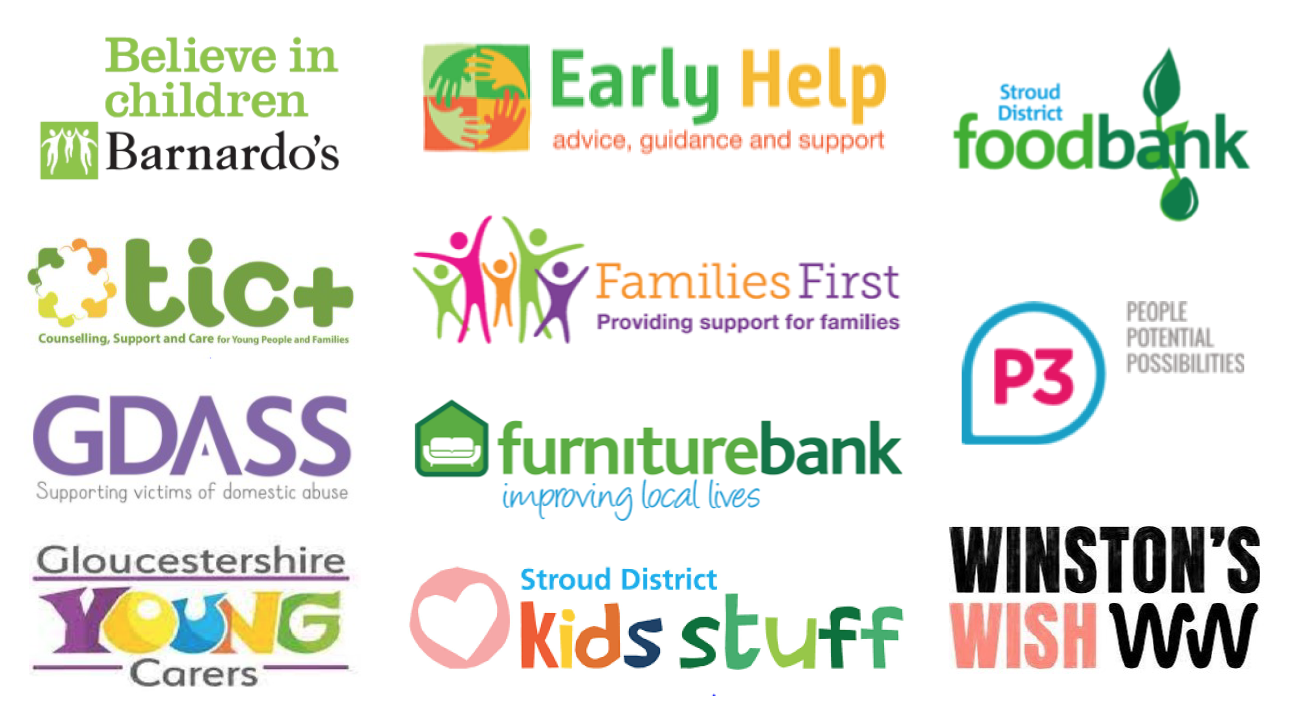Support for SEND and Vulnerable Families
At Minchinhampton, we recognise that all families can face times of challenge when they need support, sometimes to deal with a specific event or sometimes to manage a successful way through complex difficulties. We wish to reassure families that we have thought about this, un-dertaken training and organized a complete offer of early support in order to ensure a successful outcome. In order to ensure that we offer the very best support for families associated with our school, we have a range of provision available where needed, some of which is provided in house and some which is provided by other partner agencies and organisations.
We are committed to enabling every child to achieve the best they possibly can. We be-lieve that each pupil has individual and unique needs. However, some pupils require more support than others to achieve at school. We acknowledge that a significant proportion of pupils will have additional needs including special educational needs or disabilities (SEND) at some time in their school career. Many of these pupils may require help throughout their time in school, while others may need a little extra support for a short period to help them overcome more temporary needs. To help these pupils to achieve their full poten-tial, we must recognise these needs and plan accordingly. The school aims to provide all pupils with strategies for dealing with their needs in a supportive environment, and to give them meaningful access to the National Curriculum.
How do we promote positive behaviour?
Through our Relationships policy we promote relationships most conducive to learning and wellbeing. As a school community we aim to model respect for and a sense of responsibility towards others in all our relationships: between adults and pupils, between adults and between pupils. This defines meetings, les-son management and the many opportunities we offer to children to take on responsibilities around school. It defines how we respond when people make mistakes: how we expect everyone to be honest and take responsibility for their actions; how we expect people to forgive each other when things go wrong.
When there is conflict, ‘Restorative Practice’ focuses on building, maintaining and restoring relationships and giving people agency in their own lives using the method of REFLECT – REPAIR – RECONNECT .We do believe in school wide reward and sanctions, however, if your child is struggling with their behaviour the teacher will discuss this with you, our SENCO or Headteacher to help decide whether the following may be needed:
- Individual Reward Systems
- Use of a report card system
- An Individual Behaviour Plan
- Additional adult support
- A personal Risk Assessment
- A Pastoral Support Plan
- SEMH behaviour interventions
- SEMH screening tools
- Involvement of other professionals such as the Education Inclusion Team, Educational Psychologist or Advisory Teaching service.
What are the next steps?
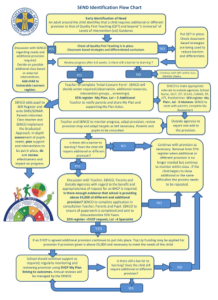 Most children with SEND make progress in their learning or be-haviour if their school and family work together.
Most children with SEND make progress in their learning or be-haviour if their school and family work together.
However there are a few children, who despite a lot of extra sup-port make less progress than they should in their learning or struggle to modify their behaviour. In this case, the SENCO will request advice and support from various outside support agen-cies. These children may then begin their journey on the Glouces-tershire Graduated Pathway and be given a ‘My Assessment’, ‘My Plan+’ or possibly an EHC Plan.
Please see the “Minchinhampton Identification Procedures Flowchart” for more information of next steps.
Download the Minchinhampton Identification Procedures Flowchart hereMinchinhampton Universal offer of Intervention
What Pastoral Care do we offer?
All staff are available in a pastoral capacity should parents have a concern about anything at all. If parents have a concern, we recommend that they speak first to their child’s class teacher. Our staff may not have the answer immediately to hand but will try to find out the answer or sign-post parents/other professionals in the right direction. We offer a range of pastoral support, aided by an open-door policy so that families can readily approach us when required.
Our Achievement for All commitment means that we work in close partnership with all parents and families and especially any who face challenges. All of our Early Help is offered in partnership with parents/carers.
Our SENCO is available to support and guide families who may be going through a difficult time and recognises the need to support the whole family in order to meet the child’s needs. Our SENCO will sign post families to further services if further support is required. Please email akingscote@minch.dgat.org.uk
What other Support Services are there?
To further help your child, our SENCO may request advice from a variety of services. The list is not exhaustive with the school actively seeking additional/alternative support when needed;
• Advisory Teaching Service, Educational Psychology Service, Education Inclusion Team, , Speech & Language Therapy, School Nursing Team, Paediatricians, Children and Adolescent Mental Health Service, Families First Team.
Our SENCO is available to support and guide families who may be going through a difficult time and recognises the need to support the whole family in order to meet the child’s needs. Our SENCO will sign post families to further services if further support is required, organisations and charities such as these below.
We also run a Nurture Breakfast club for identified and invited children that we feel would benefit, which is generously funded by Ecotricity. The aim of nurture breakfast is to support students to have a positive start to their day. It is a time where child-to-child and child-to-adult relationships are positively fostered and reinforced. A healthy, well-balanced breakfast is provided following Ecotricity’s pledge to be more sustainable and vegan in their choices. This is a time to prepare students mentally and emotionally for the day ahead and can include:
- Reinforcement of routines and class values through the sharing of a meal
- Preparation for transitions
- Soothing, calming activities and games
- Topical discussions and celebrating successes
It also enables staff to have the chance to intervene with any worries or anxieties the student is experiencing before they start their school day.
We have preloved uniform and also support the Minchinhampton Community Pantry, having dry foods for those that need a little extra help feeding their family.
To find out more information please speak to our SENCO who will be happy to support you.

